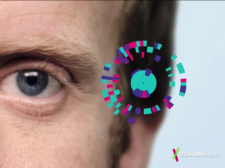News
Pronatalism is an old idea with roots in eugenics and nationalism, that is now fashionable among far-right influencers and policymakers. They talk...
This is the 10th installment in the Legacies of Eugenics series, which features essays by leading thinkers devoted to exploring...
Google-backed 23andme has been ordered to "immediately discontinue" selling its saliva-collection tests after failing to provide information to back its...

The US Food and Drug Administration has ordered 23andMe to “immediately discontinue marketing” its direct-to-consumer genetic tests unless and until the agency grants it regulatory approval. In a warning letter released on November 25, the FDA states that 23andMe’s saliva collection kit and Personal Genome Service are medical devices, and that they therefore must have premarket approval in order to be legally sold. The agency cites numerous marketing claims on the Google-backed company’s website to demonstrate that 23andMe itself sees its products as medical in nature.
Center for Genetics and Society Executive Director Marcy Darnovsky, PhD, said today that the FDA’s letter is a welcome step toward establishing public oversight for the direct-to-consumer genetic testing industry. “Our society regulates medical products to protect public health,” Darnovsky said. “Without strong public oversight, we’re back to the era of snake oil.”
The FDA’s letter details 23andMe’s failure – in “more than 14 face-to-face and teleconference meetings, hundreds of email exchanges, and dozens of written communications” since July 2009 – to demonstrate that its product has been “analytically or clinically validated.” The agency notes that although 23andMe has recently initiated a new round of marketing campaigns – including television commercials launched this summer – the FDA “has not received any communication from 23andMe since May.”
“The FDA is clearly frustrated with 23andMe’s failures to cooperate,” said Darnovsky. “The public agency charged with protecting public health has finally lost patience with a private company that seems to think it doesn’t have to play by the rules.”
Many questions have been raised about the relevance and utility of direct-to-consumer genetic tests. Several studies, including one by the Government Accountability Office, have shown that reports on the same individual’s DNA from different DTC genetic testing companies can vary, sometimes dramatically. And despite claims by 23andMe CEO Anne Wojcicki that 23andMe is “revolutionizing health care,” many scientists now believe that an individual’s risks for the vast majority of common complex diseases cannot be predicted by DNA analysis – throwing doubt on the basic premise of the DTC genetic testing industry.
“For some conditions, genetic tests are medically crucial,” Darnovsky said. “But whenever a test claims to be delivering medically actionable results, there should be oversight to ensure that the information is factually correct, medical guidance to put the information in appropriate context, and care taken to ensure that the person on the receiving end understands it.”
# # #
The Center for Genetics and Society (CGS) is a non-profit public affairs and policy advocacy organization working to encourage responsible uses and effective societal governance of human genetic and reproductive biotechnologies.
Contact:
Marcy Darnovsky
1-510-625-0819 x305
mdarnovsky[AT]geneticsandsociety[DOT]org
Adam Kirsch and Jennifer Szalai made some interesting points about Aldous Huxley in their Bookends essays (Nov...



